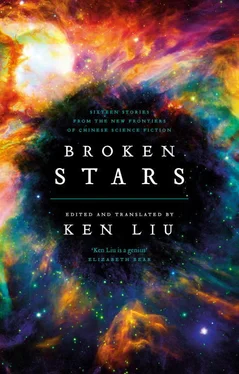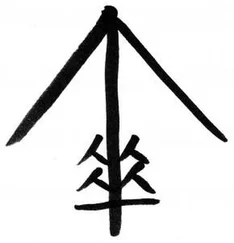Heizi and I planned to go to Guangdong in the south, which was more developed than the rest of China. Although my parents didn’t want me to be so far away from home, they were glad to see me trying to get my life back on track and gave us their life savings as starting capital. There were many opportunities in those days, and Heizi and I quickly brought some T-shirts back to Beijing, which we sold at a significant markup. Not only did we recoup all our capital, we even managed to make tens of thousands in profit. And thus we became two so-called profiteers who traveled all over China, searching for opportunities. Sometimes Heizi and I struck gold, but other times we were so poor we didn’t know where our next meal would come from.
After spending a few years traveling around and interacting with all segments of society, I realized how immature we had been back at Tiananmen. China was an overladen freight train burdened with the weight of the past as well as the present. A few students fervently shouting slogans could not change the complicated conditions of the country. But how might things be improved? I had no answers. All I knew was that although China had recovered its tranquility and the people appeared to be focused only on the concerns of daily life, there were strong currents and countercurrents of competing social interests. Together, they formed a powerful hidden whirlpool that might pull the nation into an abyss that no one wanted to see. Yet the process wasn’t something that could be controlled by anyone or any authority. No one could control history. We were all simply parts of a great vortex that was greater than any individual.
Two years after Heizi and I started our business, I bumped into Shen Qian while searching for something to buy in Guangzhou. After the protests, I stayed away from the literary elites and rarely got to see her, although I had heard that she became Liu Xiaobo’s lover. Although Liu was married, Shen Qian was willing to be his mistress because she truly loved him. Later, the rumors said Liu had divorced his wife, and I thought he would marry Shen Qian. I certainly didn’t expect to find her so far from Beijing.
Meeting an old friend a long way from home always made me emotional. Reminded of Qiqi, I felt my eyes grow wet. Shen Qian told me that she had arrived in Guangzhou hoping to stay with an old friend and get back on her feet, but the friend was nowhere to be found and she didn’t know what to do. I promised I’d help her.
I took Shen Qian to a restaurant to welcome her to Guangzhou. We talked about the old times, but both of us avoided any mention of Tiananmen. After a few rounds of drinks, Shen Qian’s lips loosened, and she told me tearfully about how Liu Xiaobo had taken advantage of her trust. He had promised to divorce his wife and marry her, but she caught him with another student. They had a fight and broke up…. As she told her story, she kept on drinking, straight from the bottle, and I couldn’t stop her. Later, she began to sing loudly, and everybody in the restaurant stared at us. I quickly paid the bill and hurried her out of there.
Shen Qian was so drunk that I had to hold her up. Since she had nowhere else to stay, I brought her back to my room. I left her to recover in my bed while I slept on the floor.
The next morning, I needed to get out early to browse the markets, and so I left without waking up Shen Qian. By the time I got back, I expected she would be gone. However, when I came in the door, I saw that my messy room had been cleaned up and everything was neatly and logically arranged. There was a new cloth on the small kitchen table, and Shen Qian, in an apron, was carrying a plate of steaming scrambled eggs with tomatoes out of the kitchen.
We looked at each other; she smiled shyly.
I knew that my life was about to start a new chapter.
8.
Shen Qian continued to stay in my rental unit. She made the place feel like home, a feeling I had long missed. And so the two of us, both with pasts that we wanted to forget, leaned against each other for warmth. Heizi had just gotten married, and after finding out that Shen Qian and I were together, he was very happy for us. He treated Shen Qian as though we were already married.
Since Shen Qian couldn’t find a job, she helped us with our business. She was nothing like the young radical student rebel she had been. After all she had gone through, she had abandoned her dreams of revolutions and literary fame and turned all her attention to family. Who was to say this wasn’t a self as true as her former image?
Half a year later, my mother came to Guangzhou for a visit, and my relationship with Shen Qian could no longer be kept a secret. My mother didn’t like Shen Qian at first, but after living with us for a while, she began to accept this future daughter-in-law and urged us to get married. Society was turning more conservative by then, and since we were no longer so young, we returned to Beijing to apply for a marriage license. At our wedding, a few old classmates joked that they always knew we would end up together.
After a year, Shen Qian gave birth to our son, Xiaobao. The wounds of the past were gradually healing. Though I couldn’t say we were happy or that everything was perfect, our life wasn’t without warmth or simple pleasures.
The leadership in Beijing was now deepening the economic reforms and gradually pushing planned economy to displace the market. One of the policies was a dual-price system, which involved one price for goods set by the economic planning authorities and another price set by the market. Many officials with the right connections could become “official profiteers” by buying goods at the low planned economy price and selling them on the market at an enormous profit. Low-level peddlers like Heizi and me, on the other hand, suffered due to our lack of connections. Business became harder and harder. One time, we managed to acquire a bunch of color televisions, but the official profiteers were a step ahead of us and cornered the market. We had no choice but to sell at a loss. We ended up owing a bunch of money and had to close up shop and head back to Beijing.
One of Heizi’s uncles was a shift foreman at a factory, and he managed to get Heizi a job as a driver there. By carrying private goods for people on official trips, Heizi made good money. I couldn’t find any such opportunity, and I was exhausted after years spent struggling in business. I decided to return to university, and began to prepare to take the examination for graduate school.
As a graduate of Peking University, I thought the exam would be a piece of cake. But after being away from a classroom for so many years, it wasn’t easy to get back into the right mind-set. I took the exam two years in a row and couldn’t pass. Since Xiaobao was getting older and our savings were nearing depletion, we relied on help from my parents. Shen Qian finally managed to get a job at a newspaper, which at least guaranteed us a base salary and benefits like housing and healthcare.
Then she began to complain about my lack of accomplishments.
“Look at you! When we got together, I thought you had some business savvy and might make it big. But in the end, you’re just a bookworm who can’t even manage to get into grad school. The Chinese Women’s Volleyball Team has won the world championship three times, which is as many as you’ve failed!”
Faced with this nagging tirade, I felt lost. What had happened to that passionate, idealistic, revolutionary leader I once knew?
Of course I knew that wasn’t Shen Qian’s fault. This was what happened after life subjected us to its endless grind. The world wasn’t a fairy tale or the setting for an adventure—even if it were, we would not be the protagonists. No matter what ideals and hopes we once harbored, the most we could hope to accomplish, in the end, was to survive.
Читать дальше












